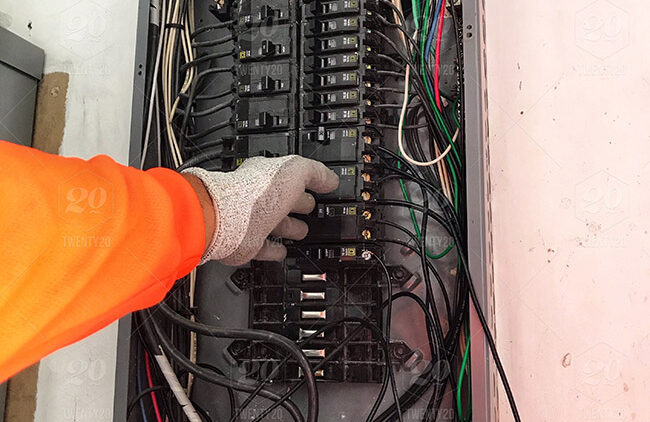Understanding the Need for a Heavy-Up Electrical Upgrade: A Guide for Homeowners
For many homeowners, the electrical panel is out of sight and mind until something goes wrong. Whether it’s flashing lights, tripped breakers, or the inability to accommodate new appliances, these issues can signal that your home’s electrical system needs an upgrade. Specifically, you might need what electricians call a “Heavy-up upgrade.” But what is a Heavy-Up, and how do you know if you need one? This blog post will explore the signs that indicate the need for this crucial upgrade and how it can benefit your home.
What is a Heavy-Up?
A Heavy-Up is an upgrade to your home’s electrical service capacity. This involves increasing the amperage of your service panel, allowing for more electrical throughput and support for higher-demand appliances and devices. Typically, this upgrade might include replacing your old electrical panel, upgrading meter sockets, and installing new wiring that can safely handle increased electrical loads.
Signs You Need a Heavy-Up Upgrade
- Insufficient Panel Capacity: If your current electrical panel is full with no room to add additional circuits, it’s a sign that your panel is outdated. Modern homes require more circuits to handle today’s conditions and technology than what was needed a few decades ago.
- Inability to Add New Appliances: If you want to install a new appliance, like an electric car charger or a robust HVAC system, but your current panel cannot handle the extra amperage, a Heavy-Up is necessary. New appliances often require more power than older panels were designed to handle.
- Frequent Circuit Overloads: Are your circuit breakers tripping frequently? This safety mechanism prevents overheating and potential fires caused by overloaded circuits. If this happens regularly, your panel works beyond its capacity.
- Plans for Home Remodels or Renovations: If you’re seeking significant home renovations, particularly those that involve high-power devices or an expansion of your home’s home’s footage, upgrading your electrical service is essential. This ensures your renovated home complies with local electrical codes and can safely support additional electrical load.
Benefits of a Heavy-Up Upgrade
- Enhanced Safety: Older panels and overloaded circuits can pose significant fire hazards. Upgrading your electrical system reduces the risk of electrical fires and other safety issues associated with outdated equipment.
- Increased Home Value: A modern electrical system is a significant selling point for potential home buyers. It indicates that the home is safe, up-to-date, and ready to accommodate modern electrical needs without further investment.
- Improved Functionality and Convenience: With a Heavy-Up, you can add more outlets, support luxurious installations like saunas or hot tubs, and not worry about tripping breakers when you run multiple appliances simultaneously.
- Energy Efficiency: New electrical panels distribute power more efficiently and can be integrated with smart home technologies to help save energy and reduce costs.
Choosing the Right Electrician for Your Heavy-Up Upgrade
Selecting the right professional is crucial for a Heavy-Up upgrade. Look for licensed, experienced electricians like Meyer Electrical, specializing in residential electrical upgrades. A qualified electrician will ensure that the upgrade complies with local codes and is done safely and efficiently.
Conclusion
Understanding the signs that you need a Heavy-Up upgrade can help you take timely action to enhance your home’s electrical system. Whether it’s for new appliances, planning for a renovation, or simply updating an outdated system, a Heavy-Up provides a safer, more efficient, and more enjoyable living environment. Remember, electrical upgrades not only improve the quality of life but also contribute to your property’s overall safety and value.
By proactively addressing the need for electrical upgrades, homeowners can ensure their homes are equipped to handle today, avoiding potential hazards and inconveniences.


